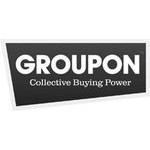
For years, digital start-ups looked to advertising as the magic bean that would pay the bills and drive their valuations. Over time, many people, especially VCs, began to sour to the concept. After all, it’s no secret that banner ad rates are pretty darned low. The natural response for many pubs and start-ups was simply to add more ads to pages. We’ve all experienced the results. 24 blinking banners festooned on the content we seek. And as a result, we’ve improvised what’s called “banner blindness” to enable us to focus on the content we sought instead of noticing yet another mortgage offer.
Now it appears that many companies have decided that coupons are the new magic bean. The number of start-ups that offer to deliver coupons for marketers is now legion. Certainly there are marketers that want to distribute coupons. Interest grew dramatically during the 2009 recessionary period.
But while some marketers are interested in distributing more coupons, the reality is that coupons generally don’t help build brand value. And so our appetite for them is finite.
Oh, yes, there are extremely valid and strategic reasons to coupon. To drive trial. To up sell. To promote brand switching. But ultimately the goal of a marketer is to charge the full value for an item. Not full value less a dollar or $2.50 or 75% if you buy your voucher today.
That’s not to say that the Groupons of the world, or outfits like Coupons.com can’t make serious money. But for the dozens and dozens of other start-ups out there betting on coupons, I think it’s time to pivot.
As brand leaders we don’t want to coupon willy nilly. And we certainly don’t want to move into a media environment in which the consumer expects a coupon for every purchase.
Unfortunately, the tremendous amount of start-up activity focused on couponing tends to make digital more of a drain on brand value than a boon. I am reminded of the mid 1990s, when cereal companies raised their prices far ahead of the inflation rate and then carpeted the country with FSIs featuring dozens of dollar off coupons. Over time, what the cereal brands realized – and what a heck of a lot of brands in other categories are now realizing – was that endless couponing sends the perception that a product isn’t worth paying full price for. Consumers become loyal to the deals rather than to the bundle of physical and emotional benefits we strive so hard to create and communicate.
I wish more start-ups out there were focused on helping brands create value. One that I think is doing just that is Zuberance, which helps brands drive consumer loyalty and spread the good word about what they offer. They make it easier for consumers to make recommendations and provide reviews of products. Now, given that personal recommendations are so much more powerful at driving purchase than other forms of communication, Zuberance is an outfit that is creating real brand value. Hey, you can also distribute coupons through it. But mostly it’s about social amplification. And THAT appears to be a delightful synonym for creating brand value.